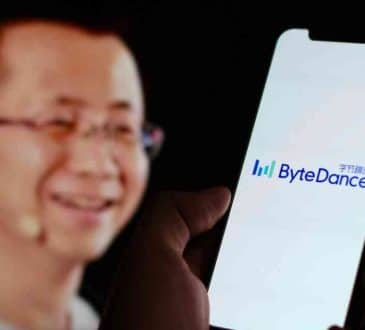Racism Exists. Here’s How to Address it in the Workplace.

Studies show that racism permeates nearly every level of society—from our schools to our justice systems and, yes, even in our workplaces. We must call out racism wherever it exists, and it must involve civil dialogue. We can never address racism by shutting down diverse opinions.
This very concept of civil, open dialogue was recently exemplified by one of my clients. Their CEO and vice president of administration shared with me their journey toward a more diverse and inclusive workplace. Here, I present their story and lessons learned, followed by commentary about my own experiences, so that you may continue the discussion at your own workplace.
The Journey Toward a More Diverse, Equitable, and Inclusive Culture
Today’s political climate has brought many brutal hardships to the forefront that we ignored in the past:
- Police murder black men and women for non-violent crimes.
- Police brutality takes place during peaceful Black Lives Matter protests.
- White women use their privilege to call the police on people of color.
- People are starkly divided in this country.
The client decided they couldn’t watch from behind the scenes any longer. They owed it to their employees to lend a listening ear and do everything they could to improve. The company first hired a diversity and inclusion coach who met individually with teams to create custom personal growth roadmaps. Then, they met regularly as a team and came away with five key learnings.
1. We Should Challenge—Not Protect—Racism
We must talk about it. Why? We do our friends and fellow humans a disservice by ignoring or hiding behind racism. We need to call out racist moments, comments, and assumptions—no matter how subtle or unintentional they may be.
2. We Have Been Socialized into a Racist Culture
In fact, as Americans, we were born into it. We don’t need to spend energy denying that fact. Why? Denying our racist culture doesn’t help anyone. Accept that you were born into it, and then change the way you think and act. You can change what you accept, deny, and fight against when it comes to these entrenched systems.
3: Interrupting Racism Takes Courage
It requires intentional actions. Why? It’s easy to pretend that we are all treated the same while telling everyone how hard you worked to get where you are in life. It takes courage to discuss why white people have held back people of color in the system. It’s easy to say, “I’m not racist.” It takes courage to say, “I want to learn how to be better.”
4. We Should Never Think We’ve Finished Learning
Why? Because if we think that the solution is simply saying, “Just be nice,” we’re telling everyone we’ve reached the pinnacle of our growth. Combatting racism is not simple. Just being nice is not enough. We must keep learning, teaching, and opening our hearts and minds to the hardships, journeys, and different experiences other people have.
5. Be Open to People Talking About Your Racism
You can’t be afraid to be called out for doing or saying something that could be considered racist. Why? When you cry about it, reject your own racism, and belittle it, you are saying, “I know everything. I have walked in your shoes. I am superior to you.”
This will never work. You must be open to criticism. Understand that it’s probably harder for someone to tell you you’re racist than it is to hear it. Open your heart and mind. Put yourself in someone else’s shoes. Ask questions, be curious. Accept that you are NOT the supreme human being.
Asking Hard Questions About Racism Brings Teams Together
Discussing these issues with my client was extremely powerful. They shared their experiences openly and listened to the experiences of others. It brought them closer in ways they didn’t think were possible. Talking about things that had always felt taboo in the workplace felt liberating.
Being asked hard questions made people reflect on their individual lives, upbringing, and experiences. It provoked them to think critically about the company they wanted to be create.
The CEO told me their journey has just begun. In the following stages, they plan to watch movies, read books, and attend mastermind sessions before coming back as a team to have more healthy conversations about race in America.
Addressing Racism in the Workplace Requires Increasing Our Decency
As the saying goes, “Hurt people hurt people.” There’s no denying that there are people suffering who make others suffer along with them. That said, I wholeheartedly believe there are more good people than bad, and, based on my own experience, while racism undeniably exists, I think calling our country racist is an unfortunate blanket statement.
I lived in New York for the first 30 years of my life. It was an inclusive environment filled with diverse people of different races, faiths, and sexual orientations. I served as a teacher in New York for many years, some of which were spent working in a reform school for juvenile delinquents. Specifically, these kids had been incarcerated three times, and they came from all five boroughs in New York City: The Bronx, Brooklyn, Manhattan, Queens, and Staten Island.
For many of them, this was their last chance. If they continued with a life of crime, the next stop would be incarceration with adult criminals. When some ran away—as there were no bars, barbed wire, or fences keeping them in—I would visit their home with other staff members to bring them back. We showed them that we cared about them and modeled ways they could change their life.
It was the most challenging job I ever had—and the most rewarding. And yes, it trumps running multiple companies and traveling extensively throughout our country. The point of sharing my personal experiences is that many people in the U.S. show respect and love to black, indigenous, (and) people of color (BIPOC).
In a Fortune article, Ajay Banga, CEO of Mastercard for 10 years, said that “inclusion” is a fancy word for human decency. He further stated:
“I think decency is the bedrock of defining what makes us humans. Decency doesn’t mean being nice to everybody. It means being fair to everybody.
When I was young, your IQ is what made you supposedly stand out. And then when I got to business school, people began talking about EQ. You know, you couldn’t choose your boss or colleagues, but how you conducted yourself with equanimity showed that you had the emotional quotient to be successful.
And I say you need DQ—your decency quotient—when you come to work every day. Because you have to bring your heart and your mind to work. You have to care about the people who work with you, for you, above you, around you. That’s where inclusion comes in. If I can make it a part of my business, then I can bring the whole company to the party.”
I want our world to return to a more civil time with a more civil tone where we can discuss difficult issues without calling each other labels or names. This can happen when we embrace Ajay Banga’s concept of “DQ.” We need to adopt the mantra of, “I strongly disagree with what you are saying, but I strongly defend your right to say it.” If we do this, I believe we can begin to have a more productive dialogue.
I remain confident that we can eliminate racism in the workplace and greater society, one person at a time.
Written by Rob Lynch. Have you read?
Best Countries For Raising Kids.
Best Countries to Headquarter Multinational Corporations (MNCs).
Best Countries For Retirement.
Best Countries For International Students.
Add CEOWORLD magazine to your Google News feed.
Follow CEOWORLD magazine headlines on: Google News, LinkedIn, Twitter, and Facebook.
This report/news/ranking/statistics has been prepared only for general guidance on matters of interest and does not constitute professional advice. You should not act upon the information contained in this publication without obtaining specific professional advice. No representation or warranty (express or implied) is given as to the accuracy or completeness of the information contained in this publication, and, to the extent permitted by law, CEOWORLD magazine does not accept or assume any liability, responsibility or duty of care for any consequences of you or anyone else acting, or refraining to act, in reliance on the information contained in this publication or for any decision based on it.
Copyright 2024 The CEOWORLD magazine. All rights reserved. This material (and any extract from it) must not be copied, redistributed or placed on any website, without CEOWORLD magazine' prior written consent. For media queries, please contact: info@ceoworld.biz
SUBSCRIBE NEWSLETTER








